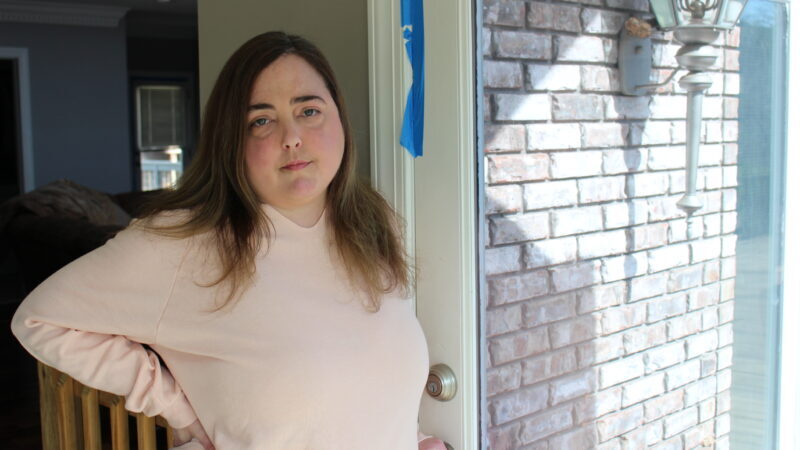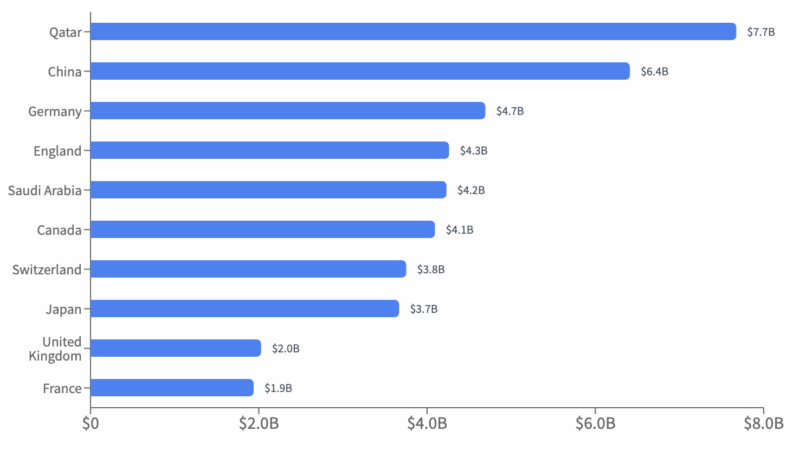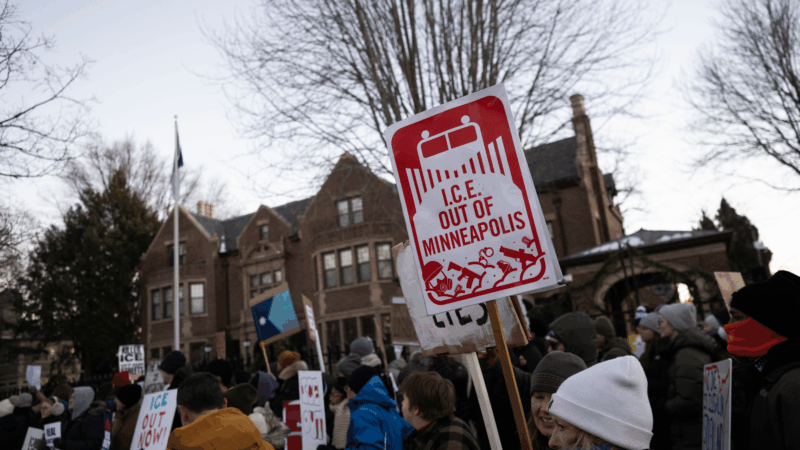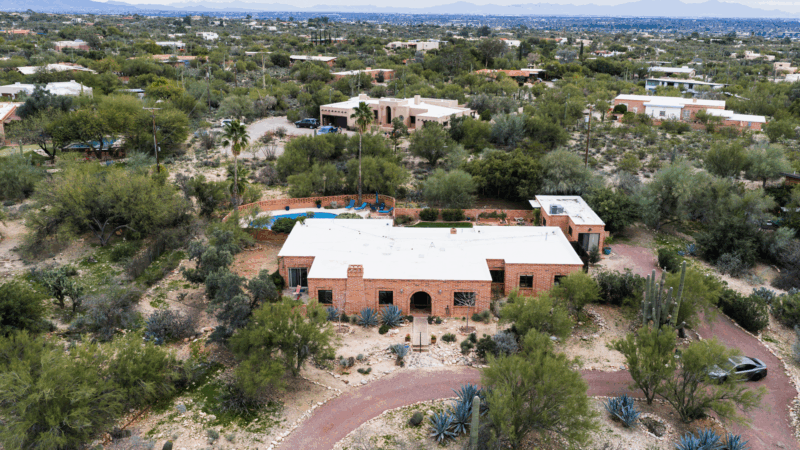A year after the Moody landfill fire: “We need just as much help now”
Around Thanksgiving a year ago a landfill near Moody caught fire blanketing the surrounding area with smoke. The fire burned for months before the Environmental Protection Agency covered the landfill with dirt to extinguish the flames, but there have been flare-ups since. Residents have been left wondering what health effects they may have suffered from the fire or when the fire will be completely out.
To understand what things are like now, WBHM’s Andrew Yeager checked in with Krissy Harmon. She lives less than a mile from the landfill with her severely autistic son.
This interview has been edited for length and clarity.
Give me a sense of what things are like in terms of air quality, atmosphere, almost a year later.
So during the summer, we felt that things were really looking up. However, we did know and expected through experts that the smell and everything would not be as bad in the warmer weather, but when it started getting cooler again that we might still smell it. As weather has changed, it’s just as they said. The fires have opened back up in the morning time. And in the meantime, the smell is the worse. It’s happening again and we fear that we might not ever get rid of this at this point.
When we talked to you before, you had talked about headaches and nosebleeds and other symptoms like that. How much are you experiencing that?
My nosebleeds have stopped. We all have sinus issues. We’re all having some congestion that could be attributed to both the chemicals in the air or the weather change. So it’s hard for me to sit here and tell you this is absolutely the problem. I can’t do that. I’m not going to do that.
However, since this whole thing began, my son’s seizures have increased and not he’s not been himself the whole time. So if anybody ever said that the air was clear, the chemicals were not affecting anybody, I don’t believe that.
Over the summer, there was this working group. They came back and basically said this was an unprecedented situation. Local and state governments weren’t in a position to really respond adequately. They recommended some logistical changes, some training. But how satisfied are you with the response that you’ve gotten from higher-ups?
Zero stars. I’m pleased that they came out and tried. I’m not pleased that they didn’t see it through. It’s like putting a Band-Aid on a bullet hole. How can you be satisfied with something that did not work?
I just want to be clear that I’m not anti-government or anything like that. I just want them to do their jobs. Please help us. Don’t leave us behind. This is not something that’s going away on its own. We need help. We need just as much help now as we did a year ago.
For those of us who aren’t in your shoes, who haven’t had to live near there for the last year, what do you think we don’t understand about the situation you’ve been in?
I’m not even an environmentalist. But there is a fire burning less than a half a mile from my house. There are people who are butted up against it and they can smell it in Oneonta, Ashville, all over the place, Odenville. Whichever way the wind blows is where you’re getting it and you can’t escape it. And it feels like the state just says “if you don’t like it, move.”
We’re rooted here. This is our home. For me, this is our family home. It has meaning to us. So I don’t know what else to do to cry for help here. People are sick. There are many people who were never recovered from the first round of this. And now we’re going back into it. That’s a terrifying place to be.
Jordan Stolz opens his bid for 4 golds by winning the 1,000 meters in speedskating
Stolz received his gold for winning the men's 1,000 meters at the Milan Cortina Games in an Olympic-record time thanks to a blistering closing stretch. Now Stolz will hope to add to his collection of trophies.
US Colleges received more than $5 billion in foreign gifts, contracts in 2025
New data from the U.S. Education Department show the extent of international gifts and contracts to colleges and universities.
On his long-awaited ‘Fall-Off,’ J. Cole returns a new man, old man and everyman
After dropping out of modern rap's defining conflict, the Fayetteville MC contemplates the making and breaking of a legacy.
Swing voters in Arizona say they want to see ICE reformed
Concerns about the tactics of federal immigration agents remain front of mind for some key voters who supported President Trump in 2024.
Free speech lawsuits mount after Charlie Kirk assassination
Months after the killing of Charlie Kirk, a growing number of lawsuits by people claim they were illegally punished, fired and even arrested for making negative comments about Kirk.
How the FBI might have gotten inaccessible camera footage from Nancy Guthrie’s house
Last week, law enforcement said video footage from Nancy Guthrie's doorbell camera was overwritten. But the FBI has since released footage as Guthrie still has not been found.








